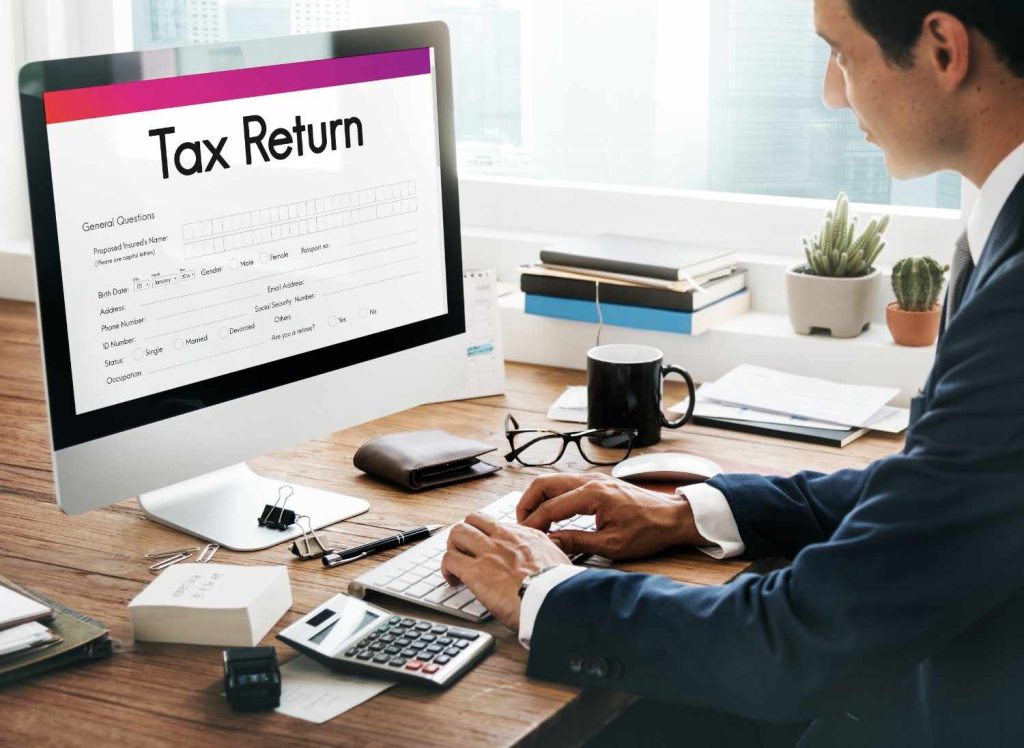Key considerations for Filing corporate Tax Returns in the UAE : A guide for Businesses

Filing corporate tax returns in UAE ensures compliance, mitigates penalties and protects financial health. Accurate filings require attention to detail. This article outlines key areas to focus on for accurate and compliant tax returns in the UAE. These include understanding free zone benefits, ensuring IFRS compliant financial statements, and classifying costs effectively. Partnering with JAXA Chartered Accountants, a leading audit, tax, and accounting firm in Dubai, to streamline compliance and optimize taxes.
1. Proper Financial Statements
Accurate financial statements are essential for compliance. Ensure financial records follow International Financial Reporting Standards (IFRS) to enhance transparency and avoid fines.
Accurate statements clearly show revenue, expenses, and taxable income, reducing audit risks. Misclassifying income can lead to penalties. Businesses should maintain detailed records with proper documentation for all transactions.
Key Points:
- Ensure financial statements comply with IFRS.
- Maintain detailed transaction records.
- Verify calculations to prevent errors.
2. Assessing Free Zone Benefits
Some UAE free zones offer tax exemptions to qualifying companies. Understanding eligibility criteria maximizes these benefits. Businesses in sectors like trading or technology often qualify if they meet economic substance requirements.
Verify your activities, compliance with free zone rules, and economic substance regulations. Miscalculations can lead to fines or lost benefits. Consult JAXA Chartered Accountants for expert advice.
Key Steps:
- Check registration and compliance in the free zone.
- Verify economic substance compliance.
- Seek professional guidance to maximize benefits.
3. Classifying Costs Correctly
Classifying costs properly avoids overpayments or penalties. Businesses must distinguish between deductible, partially deductible, and non-deductible expenses.
Personal expenses, fines, and penalties are non-deductible. Partially deductible costs, like entertainment, must be documented. Accurate records support claims during audits.
Steps:
- Separate personal and business expenses.
- Record partially deductible costs with explanations.
- Use accounting software for easier classification.
4. Tax Registration and Deadlines
UAE companies must register for corporate tax and file returns on time to avoid penalties. The Federal Tax Authority (FTA) mandates timely submissions.
Track deadlines and allocate time for preparation. Late filings lead to penalties or legal actions. Partner with JAXA Chartered Accountants, an FTA-approved agency, for seamless compliance.
Steps:
- Register for corporate tax on the FTA portal.
- Maintain up-to-date records.
- Set reminders for deadlines.
5. Complying with ESR
Economic Substance Regulations (ESR) ensure businesses benefiting from tax incentives have adequate local presence. Compliance avoids penalties or loss of benefits.
Steps:
- Conduct core income-generating activities in the UAE.
- Meet staffing, operational, and asset requirements.
- Submit accurate ESR notifications annually.
Checklist:
- Confirm ESR applicability.
- Ensure timely ESR notifications.
- Review compliance regularly.
6. Role of Technology
Advanced accounting tools streamline tax preparation, automate calculations, and ensure regulatory compliance.
UAE-specific software offers features for VAT compliance, free zone benefits, and tax filings. Technology reduces errors and saves time.
Steps:
- Invest in UAE-specific accounting tools.
- Train staff on software usage.
- Update software regularly for new regulations.
Professional support lets businesses focus on operations while ensuring compliance.
7. Options to Claim Small Business Relief or Account for Realization
Small businesses in the UAE may be eligible to claim small business relief. Carefully assess if your business qualifies and if claiming relief is beneficial. Similarly, ensure you account for realizations and losses accurately.
Key Considerations:
- Evaluate the potential for small business relief.
- Consider tax loss transfers within qualifying groups.
- Review related party and foreign operation disclosures to ensure proper accounting.
8. Transitional Relief for Immovable Properties and Intangible Assets
For businesses dealing with immovable properties or intangible assets, transitional relief may apply. Be sure to fully understand the relief opportunities and ensure all required documentation is in place. This could reduce your tax burden during the transition period.
Steps:
- Review eligibility for transitional relief.
- Account for any changes related to immovable properties and intangible assets.
- Keep detailed records to support claims for relief.
9. Thorough Checking for Accuracy
Conducting a comprehensive review of all tax-related aspects is key to minimizing risks. Thoroughly check your tax filings for accuracy and compliance with all relevant UAE tax laws. This includes reviewing financial statements, cost classifications, and ensuring proper tax relief claims.
Checklist:
- Ensure all tax filings are accurate.
- Double-check calculations and classifications.
- Review compliance with all regulations, including ESR and free zone rules.
Filing corporate tax returns in the UAE requires careful attention to detail in several critical areas. By focusing on IFRS-compliant statements, maximizing free zone benefits, correctly classifying costs, and leveraging available tax relief options, businesses can ensure accurate and compliant filings. Partnering with experts like JAXA Chartered Accountants can help streamline the process and optimize your tax strategy, reducing risks and penalties.
Filing corporate tax in Dubai is not just a legal obligation but a strategic move for your business’s success.